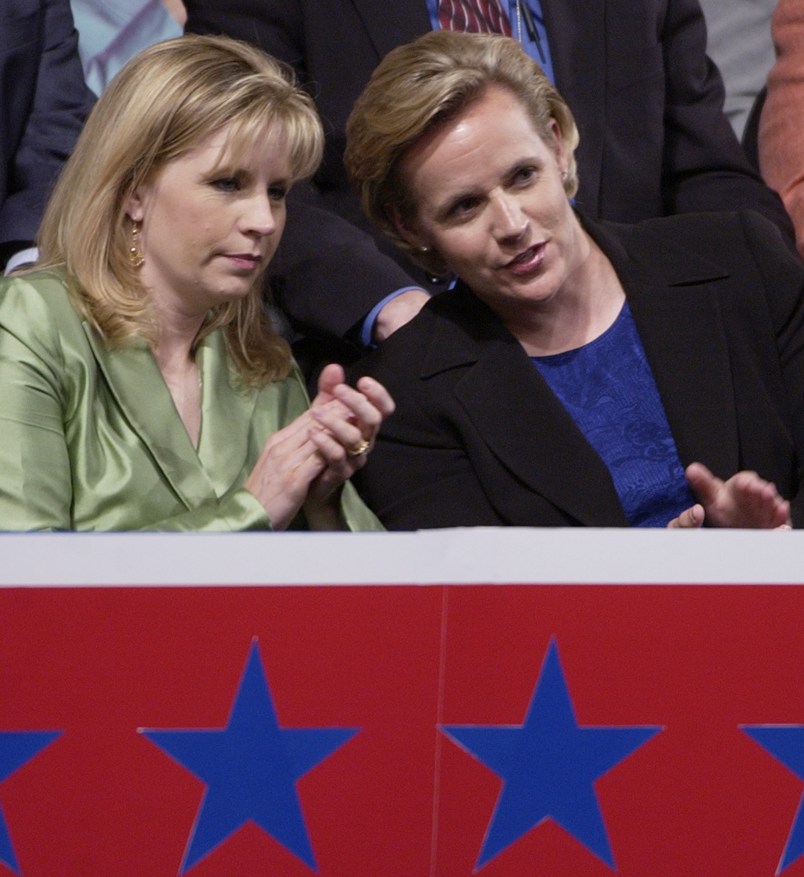Many gay Americans recently watched with fascination the reality show concerning the Cheney family and Mary Cheney’s marriage to her spouse, Heather Poe. Particularly during the holiday season, it was agonizing to witness this all-too-familiar melodrama being played out in the media. In this case, Tolstoy was wrong: each unhappy family is not unhappy in its own way. In fact, almost every gay person of my and previous generations has experienced this type of painful conflict with at least one close family member at some point in their lives, all too often over turkey and pumpkin pie.
And while Liz Cheney, who is running for a Senate seat in Wyoming, made it clear on a news show that she loves her sister and her sister’s family, the issue has moved beyond personal feelings. In its decision declaring the key section of the Defense of Marriage Act (DOMA) unconstitutional last June, the Supreme Court characterized Mary Cheney’s marriage as “a far-reaching legal acknowledgment of the intimate relationship between two people, a relationship deemed … worthy of dignity in the community equal with all other marriages.” For purposes of federal law, gay married couples have the same access to the rights and obligations of marriage as straight married couples. In other words, it’s no longer just about love, it’s now the law. 

The 5-4 decision in Windsor was a victory not only for my client Edie Windsor, but for millions of other Americans. From the very beginning, our motto in the case was that “it was all about Edie, stupid.” We believed that the best way for people to clearly see the important legal issues involved was through the lives of real people, like Edie Windsor and her late spouse, Thea Spyer.
 Justice Ruth Bader Ginsburg clearly agreed. In a recent speech, she described Edie’s 44-year relationship with Thea as a “grand partnership.”
Mary Cheney and Heather Poe clearly have their own “grand partnership” that powerfully illustrates the dramatic shift in attitudes about gay people that has occurred. Only ten years ago, Mary Cheney worked enthusiastically for the vice presidential candidacy of her father on a campaign whose platform demanded that no state should “recognize gay marriage from another state.” Today, in a marriage that is respected under federal law, and with two children to raise, Mary Cheney is understandably unwilling to be treated as a second class citizen either by her own government or her own family. As she put it on Facebook, “Either you think all families should be treated equally or you don’t. Liz’s position is to treat my family as second class citizens. That’s not a position I can be ‘lovingly tolerant’ towards.”
During oral argument in the Windsor case before the Supreme Court last March, the Justices observed that a “sea change” in the cultural perception of gay people had taken place. This of course is true. After all, when the Defense of Marriage Act or DOMA was passed only 17 years ago, Congress was explicit that it was doing so to express “moral disapproval of homosexuality.” One member of Congress cautioned that marriages between gay couples would “destroy thousands of years of tradition which has upheld our society.” Another warned that “no culture that has ever embraced homosexuality has ever survived.” By contrast, just this month, the Senate voted on the Employment Non-Discrimination Act (“ENDA”), which would make it illegal to fire someone from their job just because they are gay. The law passed with the votes of ten Republican Senators and the support of 63% of the American public. (ENDA still faces an uncertain future as it heads to the House of Representatives.)


During the oral arguments in Windsor, the Justices did not agree about what it was that has driven this evolution. Noting that politicians were “falling over themselves” to endorse our position, Chief Justice John Roberts asked whether the “sea change” had to do with the “political force and effectiveness” of the people supporting our side of the case, suggesting that elected officials like President Obama or President Clinton or Vice President Cheney speaking out in favor of the right of gay couples to marry is what was behind the huge cultural shift. I responded by saying that it was my belief that the “sea change” actually reflected the exact opposite of the “moral disapproval” expressed by Congress when passing DOMA in 1996. Instead, it came from a “moral understanding” that gay people are no different, and that the relationships of married couples like Edie Windsor and Thea Spyer — or Mary Cheney and Heather Pope — are no different from the relationships of anyone else.
Unfortunately, Liz Cheney has failed to grasp this fundamental change in moral understanding. As bad as she must assume the poll numbers would be among likely Republican primary voters in Wyoming on the issue of gay marriage, there is no question that the numbers would be far worse in a theoretical poll asking whether people in Wyoming (or anywhere else) believe it is acceptable to deny the fundamental dignity and equality of one’s own sister, nephew, niece or neighbor.
The “sea change” that has occurred in places like New York, Washington D.C., Maine, Iowa and California may not have made it yet to the mountains of Wyoming, but the inevitable tide is rolling in. The Cheney saga is only further proof that when it comes to the growing acceptance of the marriages of gay people, it isn’t the American people following politicians, but politicians following the American people.
Roberta A. Kaplan was the lead attorney for Edie Windsor in United States v. Windsor and won the case challenging the Defense of Marriage Act before the U.S. Supreme Court. Kaplan is a partner at Paul, Weiss, Rifkind, Wharton & Garrison LLP.






